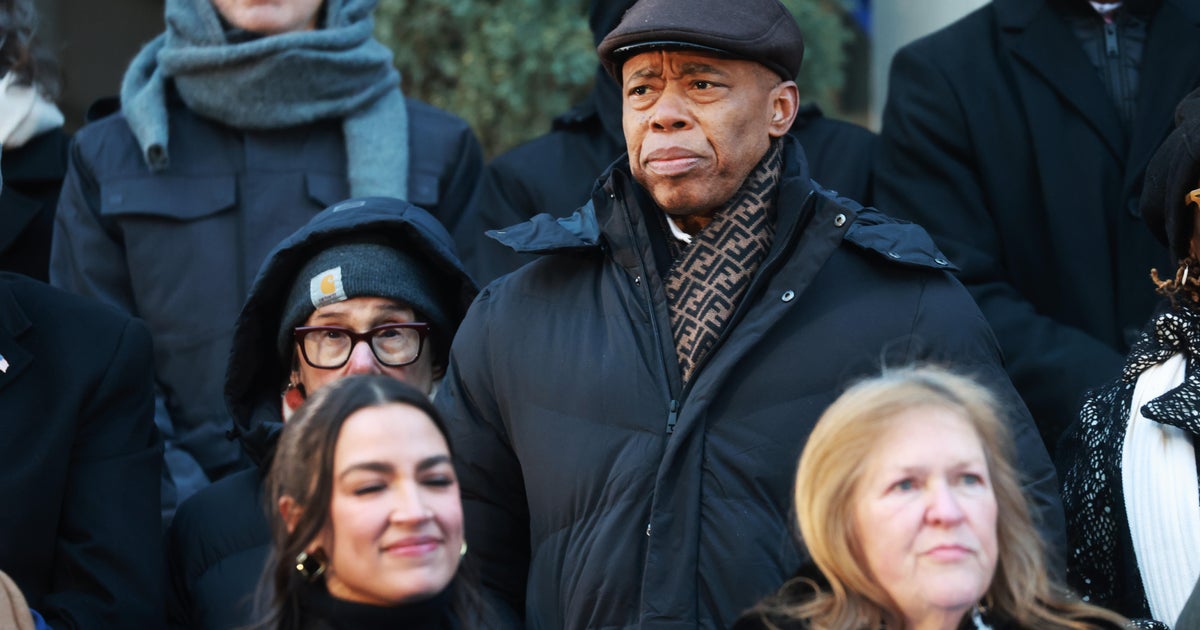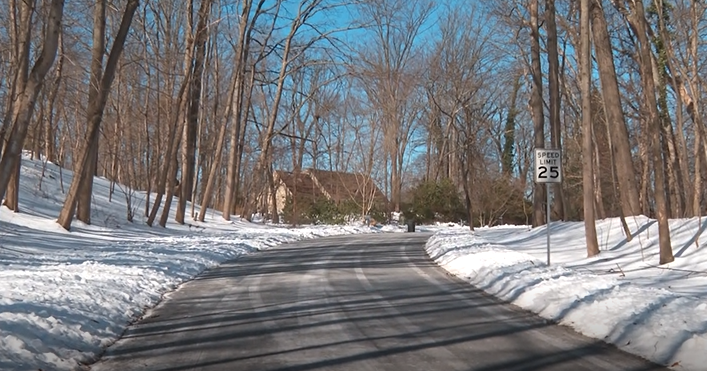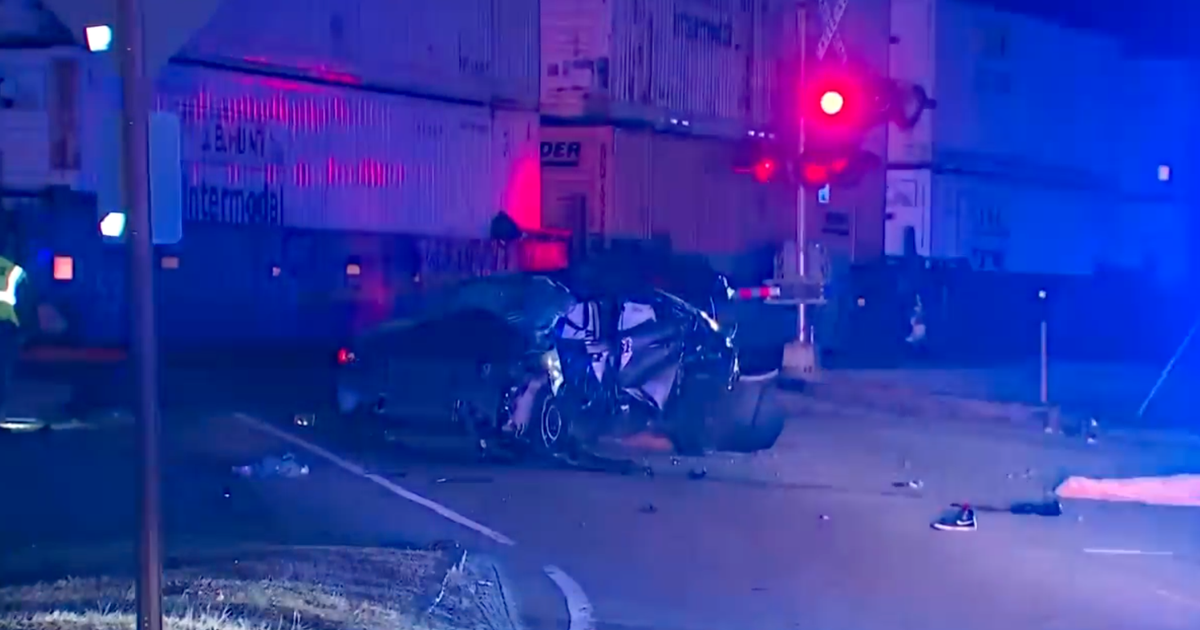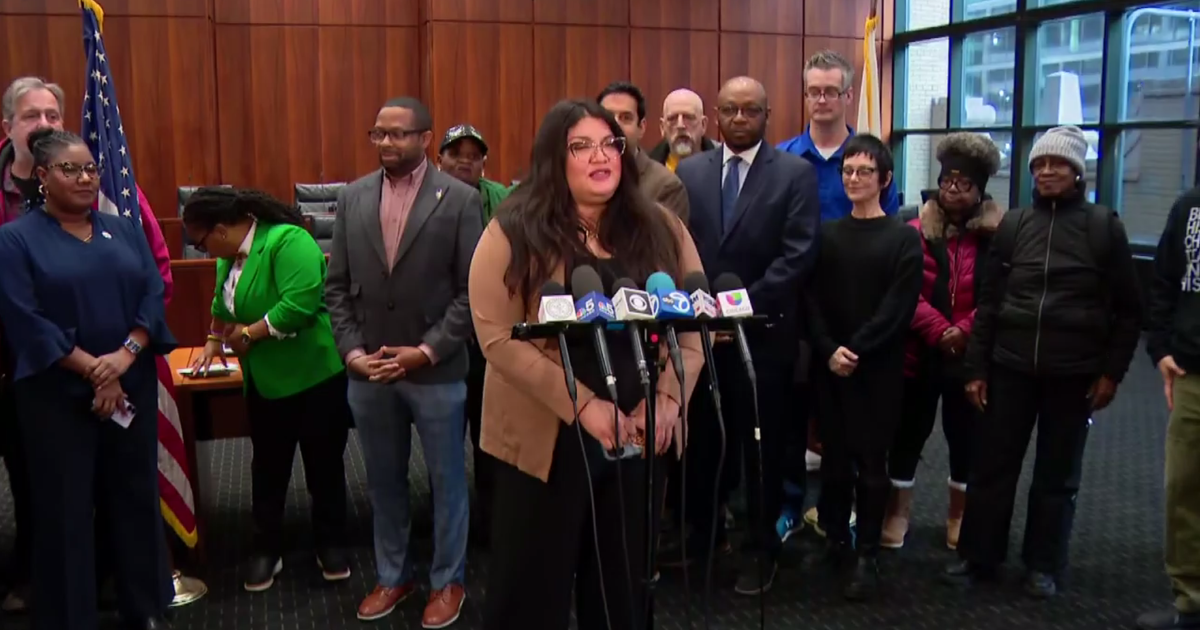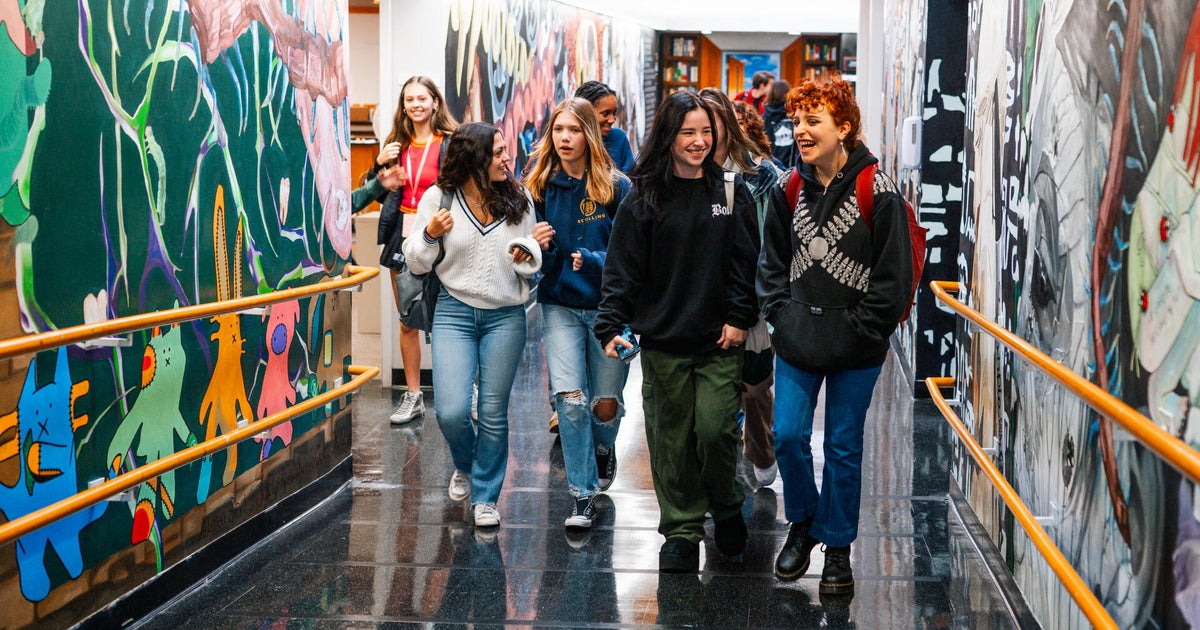Terror Prevention, De Blasio Pay-To-Play Allegations Dominate Fierce Final Mayoral Debate
NEW YORK (CBSNewYork) — Prevention of future terror attacks in the wake of a deadly incident just a day earlier, and pay-to-play allegations against Mayor Bill de Blasio, were among the dominant subjects at the final New York City mayoral debate Wednesday night.
Democrat de Blasio, Republican Nicole Malliotakis, and Independent Bo Dietl made their case to voters. CBS2's Maurice DuBois moderated the event at the CUNY Graduate Center studio.
The topics and questions reflected concerns raised by New York voters through social media and at a series of town hall events across the five boroughs.
The debate came a day after a terrorist attack on the West Side bike path in Lower Manhattan left eight people dead and a dozen injured when an assailant plowed into cyclists and pedestrians with a pickup truck. DuBois noted that suspect Sayfullo Saipov, 29, reportedly had attended a New Jersey mosque that had once been under surveillance by the NYPD under a program that Mayor de Blasio discontinued.
Under the program, plainclothes officers infiltrated Muslim student groups, put informants in mosques, monitored sermons and cataloged Muslims in New York who adopted new, Americanized surnames.
DuBois asked if the city could fight future threats while not infringing on civil rights. De Blasio said his administration is working to do just that.
"Yes, we can prevent terror by intelligence gathering. We can prevent terror by building close relationships with communities all over the city," he said.
He said the NYPD surveillance program that focused on mosques and Muslim communities alienated police officers from the people it needed information from, and also violated rights.
Malliotakis -- who currently serves in the New York State Assembly -- did not endorse or denounce the discontinued surveillance program. But she countered that the solution is to give police officers "the tools that we need to do their job," and said there should be "no limits to their ability when they get their lead."
She said no group or religion should be targeted, but if the lead is credible, police should be given "the resources needed to do their job."
But Dietl said "yes" to surveillance when it comes to terror prevention.
"What we have to have is effective community relations, but as far as this profiling thing, worrying about it – well, look at it. Just look at this terrorist; what he looks like?"
He said the city "can't have political correctness all the time."
DuBois also noted that the truck attack on Tuesday was similar in its execution to attacks in Nice, France; Berlin; London and other cities worldwide. He asked de Blasio why the city has not taken proactive measures such as putting up bollards ahead of time at sensitive locations.
De Blasio responded that first under Commissioner Bill Bratton and now under Commissioner James O'Neill, the NYPD has resolved to increase the number of officers focused on anti-terror activities. He noted that 2,000 more officers have been added to patrols over the last few years, and a focus on terrorism has been increased based on events overseas.
He also noted that through traffic is no longer allowed during parades and blocker trucks full of sand have been set up to prevent the routes. Bollards have also been placed in some sensitive locations, de Blasio said.
He noted in particular that extra bollards were set up in Times Square after a driver mowed down several people there in May -- killing one and injuring 22 more.
"We change constantly with the times," de Blasio said.
But Dietl said the security measures in place are not sufficient, taking a swipe at de Blasio and saying he is "a person that actually takes the subway, not for photo opportunities." Dietl said the crowds in the subway can also be vulnerable.
For her part, Malliotakis said she would have an administration that will be "proactive, not reactive."
"We will have bollards where necessary," she said, adding that talon nets should also be set up to shred a dangerous driver's tires before anyone is struck.
The debate grew heated when it came the issue of crime and prevention. DuBois noted that Malliotakis has repeatedly said felony sexual crimes are up 25 percent in the past three years, while official statistics only show the numbers up 4 percent. Malliotakis said the 4 percent number is only with regard to rapes, and said her numbers come from COMPSTAT statistics.
De Blasio defended the police force and said crime is down across the board. He also said he had never been able to find the statistic about felony sex crimes that Malliotakis was talking about.
"I have asked the NYPD continuously, and here's what we know. Crime has gone down for four straight years," de Blasio said. He added that "the NYPD takes crime against women very seriously."
But Dietl then accused de Blasio of "fudging the numbers" when it comes to crime – focusing specifically on crime in schools. Dietl said Gregory Floyd, president of Teamsters Local 237 representing school safety officers, had reported that the officers he represents have been told they will lose vacation days if they make complaints with police.
He said Floyd should be put under oath before the City Council on the matter.
De Blasio protested: "We should not be listening to statistics made up by union leaders. We should be listening to the NYPD," since police are in charge of school safety.
The mayor said crime and violence are down in schools over five years. He noted the tragedy in which Matthew McCree, 15, was stabbed to death at his Bronx school in September, but also noted that it was the first time in 25 years that a child suffered a violence death in the classroom.
But Malliotakis said schools are not safe, and said most teachers report they do not feel safe in their classrooms. She also accused de Blasio of removing authority from teachers and principals to control their classrooms thanks to changes in discipline reporting methods, and said students are now comfortable bringing weapons and drugs to schools, bullying other students, and disrespecting teahcers.
De Blasio was later asked about recent testimony by onetime donor Jona Rechnitz. In testimony at the bribery trial of former correction officers' union head Norman Seabrook, Rechnitz has repeatedly accused de Blasio of taking part in pay-to-play politics.
De Blasio has dismissed Rechnitz as a liar repeatedly, and in the debate, he did it again.
"What we now know about him, we didn't know then. He is a liar. He is a felon. Don't believe anything he says," de Blasio said.
De Blasio said Rechnitz was a donor who provided resources at one point, but they did not have a personal relationship, though Rechnitz has talked in testimony his weekly contact with de Blasio, through email, texts, phone calls and communication through the mayor's Campaign Finance Director Ross Offinger.
DuBois asked if de Blasio would release his phone records. De Blasio responded: "This matter has been fully investigated by the federal authorities. They took no further action."
In firing back, Dietl accused de Blasio of corruption and suggested that the mayor should face prosecution.
"When I saw [Rechnitz] testify, I wanted to take a shower. This guy [Rechnitz] is a creep. He's disgusting," Dietl said. He went on to say the mayor had received $200,000 from Rechnitz, but said the mayor yet claimed not to know the former donor.
"You want the people of New York to think we're that stupid that you don't know this guy?" he said.
Dietl said the governor should bring in a special prosecutor "against you," directing his comments at the mayor. He also said the Attorney General should bring in the Department of Justice.
"This city is corrupt like heck," Dietl said.
Malliotakis said the Rechnitz issue was not the only suggestion of pay-to-play in the de Blasio administration.
"I think the question for the public is if they want a mayor who looks for that little loophole; a way to skirt the law and get an intended outcome for him and his friends," Malliotakis said.
She specifically mentioned a developer getting a luxury condo tower built on New York City Housing Authority property, and the Rivington House nursing home on the Lower East Side also being turned into luxury housing. Malliotakis said restrictive deeds governing land use were lifted because of lobbyists with relationships with the mayor.
De Blasio countered that he was not involved in the Rivington deal and would have stopped about if he had known. He said the development on NYCHA property is intended to bring revenue to the struggling agency.
On the homelessness crisis, DuBois noted that news reports have shown documented evidence of more homeless people on the street in recent years, and two years ago, CBS2 even showed the mayor images of a homeless man taking a bath in the fountain at Columbus Circle.
"Why did you ignore all that evidence?" DuBois asked de Blasio.
"Maurice, I didn't ignore it. We put a huge amount of resources into addressing homelessness from the beginning. What we failed to – and I've been very open about it; I take full responsibility. I should put forward a holistic plan from the beginning. We did that earlier this year. I think that's been a very important contribution to moving us forward. We should have focused as much on street homelessness as on shelter homelessness," de Blasio said.
But the mayor said the city got 62,000 people out of homeless shelters in four years and into better housing, and has provided at-risk people with subsidies to keep them in their homes. Still, the mayor conceded that the city could have done a better job with dealing with street homelessness and is now doing so.
Malliotakis has said she does not want new shelters opened in neighborhoods, but also does not want the homeless housed in hotels. DuBois asked where the thousands of homeless would go with those options off the table.
"We don't need to be building 90 additional shelters, as the mayor wants to do, in the communities. What I've said is that this is a mismanagement issue. He's nearly doubled the amount of money he's putting towards homeless services, yet the results have gotten worse, with a 40 percent increase in street population this year alone," she said.
She called for a catalog of all properties that have come into the city's possession due to liens and in other ways, and to work with nonprofits to provide senior housing, veterans' housing and low-income housing, and again mentioned the fact that development is occurring on NYCHA property.
Malliotakis also called for vocational training so people can get skills for good jobs, and also for dealing better with mental health.
She also said of the practice of placing the homeless in hotels: "Do you know who benefits from the homeless crisis? It's all those hotel owners who are receiving contracts of $19 million a year."
For his plan for dealing with the street homeless, Dietl claimed that 10 to 15 percent of the residents of public housing are making more than $55,000 even though that is supposed to be the upper income threshold for residents.
"That could be about 28,000 people that could go into the apartments in NYCHA," he said.
Dietl also suggested that a high-rise could be built on Randalls Island for the homeless, rather than opening new shelters in neighborhoods.
"You could certainly build it for very cheap," Dietl said.
De Blasio said a mental health outreach effort is already under way. He also said Dietl's idea of creating high-rises for the homeless is "not legally allowable."
DuBois also asked the mayor about his opposition to congestion pricing, and his call instead for a millionaires' tax to fund improvements in the struggling subway system. The millionaires' tax has been called "dead on arrival" in the New York State Senate.
De Blasio said as of now, Albany has no plan for the subway repairs. He said further that U.S. Sen. Bernie Sanders (I-Vermont) came out just this week in support of the millionaires' tax.
"I'm sick of people saying what can and can't happen in Albany," de Blasio said. "I was told that pre-K could never get done. Pre-K did get done with Albany's help."
Dietl brought up alternative ideas for dealing with the related issue of traffic congestion, as well as for bringing in tax revenue.
"First of all, I would do a survey on these friggin' bike lanes," Dietl said, noting that he rides a bicycle himself. He said the current street configurations with bike lanes make congestion worse and can even make it difficult for an ambulance to get through.
He also called for a tax specifically on foreign investors who buy apartments in New York City.
"Let's put a tax on their butts so we can get money out of them," Dietl said. "And that's money that we can use for other things."
Malliotakis said the mayor's call for a millionaires' tax is hypocritical when his own house is worth $3.6 million and "lower income earners and middle class homeowners" are "subsidizing" his property taxes.
As to transit, she said she believed it was critical to work with Gov. Andrew Cuomo, and in particular to upgrade the subway systems' antiquated signal systems to something technologically up-to-date.
She said despite billions in spending on it, "mass transit is probably the number one issue" in the city, "and yet it's still a disaster."
De Blasio took Malliotakis to task for the comment about his house, noting that he bought his family's Brooklyn home a long time ago and did not expect it to appreciate in value to the degree that it has. As de Blasio spoke, Dietl mockingly said to him, "You're a millionaire!"
De Blasio then asked if Malliotakis herself would support his plan for a millionaires' tax for subway upgrade funding.
"I support you, millionaire Bill, paying more property taxes," she said. "That's what I support."
When de Blasio asked her a second time if she supported his millionaires' tax plan, and said she could advocate for it in the state Assembly, Malliotakis said the plan was unrealistic – and also said she would become mayor in January anyway.
The candidates also exchanged heated remarks back and forth with one another as to affordable housing and how to keep people in their homes – as well as how to deal with the homelessness crisis, among other issues.
In his concluding remarks, de Blasio noted what he touts as his achievements over the last four years – including creating affordable housing, presiding over a police department that has brought down crime, and achieving pre-kindergarten for all. He said he would move ahead with what he started in four more years as mayor, and would also stand up to President Donald Trump.
"With your help, we can go forward in this city and ensure that it remains the New York we love – a city for everyone," de Blasio said.
But Malliotakis said the de Blasio administration had actually left too many New Yorkers behind. She said teachers feel like they cannot control their classrooms, veterans have to fight for homes, workers making $35,000 cannot get affordable housing despite their modest income, and victims of Superstorm Sandy still find themselves struggling five years later.
"They don't have powerful lobbyists. They don't have rich developers over for dinner. And they certainly don't have $100,000 to give the mayor when he calls," Malliotakis said. "I'm fighting for them."
She said if she is elected, "the 'for sale' sign comes off City Hall."
In his closing statement, Dietl also went after the mayor and pay-to-play allegations against him. But the former NYPD detective went further and called the mayor a "criminal."
"As a detective, I know a criminal when I see one. Mr. Mayor, you're a criminal with your corruption and your pay for play," Dietl said.
He said voters should think about whether they feel better after four years.
"You have a choice. I'm running as an independent. And my line – I picked this special for you, Mr. Mayor -- it's 'dump the mayor,'" Dietl said. "And you know what mayor I want to dump? I want to dump you."
The debate was sponsored by CBS2 and TV 10/55, 1010 WINS, WCBS 880, the New York Daily News, Common Cause New York, the New York Immigration Coalition, and CUNY.
New Yorkers will cast their votes in the general election on Tuesday, Nov. 7, 2017.

